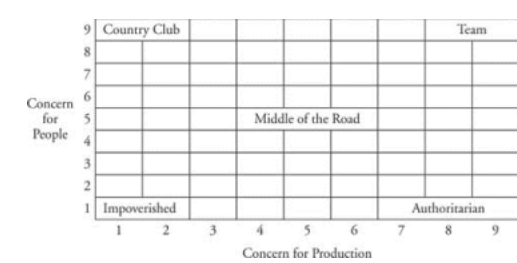
1· Legitimate power stems from a formal management position in an organization and the authority granted to it. Subordinates accept this as a legitimate source of power and comply with it.
2· Reward power stems from the authority to reward others. Managers can give formal rewards, such as pay increases or promotions, and may also use praise, attention, and recognition to influence behaviour.
3· Coercive power is the opposite of reward power and stems from the authority to punish or to recommend punishment. Managers have coercive power when they have the right to fire or demote employees, criticize them, withhold pay increases, give reprimands, make negative entries in employee files, and so on.
Keep in mind that different types of position power receive different responses from followers. Legitimate power and reward power are most likely to generate compliance, where workers obey orders even though they may personally disagree with them. Coercive power most often generates resistance, which may lead workers to deliberately avoid carrying out instructions or to disobey orders.
Unlike external sources of position power, personal power most often comes from internal sources, such as a person’s special knowledge or personality characteristics. Personal power is the tool of a leader and can be of two types:
4· Expert power results from a leader’s special knowledge or skills regarding the tasks performed by followers. When a leader is a true expert, subordinates tend to go along quickly with his or her recommendations.
5· Referent power results from leadership characteristics that command identification, respect, and admiration from subordinates who then desire to emulate the leader. When workers admire a supervisor because of the way he or she deals with them, the influence is based on referent power. Referent power depends on a leader’s personal characteristics rather than on his or her formal title or position, and is most visible in the area of charismatic leadership.
Titany answered the question on September 20, 2021 at 12:10
- Identify the leadership styles found in the managerial grid model below
(Solved)
Identify the leadership styles found in the managerial grid model below

Date posted: September 20, 2021. Answers (1)
- Abilities that successful leaders possess according to Peter Drucker(Solved)
Abilities that successful leaders possess according to Peter Drucker
Date posted: September 20, 2021. Answers (1)
- Identify six core characteristics that the majority of effective leaders possess(Solved)
Identify six core characteristics that the majority of effective leaders possess
Date posted: September 20, 2021. Answers (1)
- Describe the importance of leadership in an organisation(Solved)
Describe the importance of leadership in an organisation
Date posted: September 20, 2021. Answers (1)
- Define directing in relation to leadership(Solved)
Define directing in relation to leadership
Date posted: September 20, 2021. Answers (1)
- Describe the employee compensation(Solved)
Describe the employee compensation
Date posted: September 20, 2021. Answers (1)
- Limitations of performance appraisal (Solved)
Limitations of performance appraisal
Date posted: September 20, 2021. Answers (1)
- List three components of performance appraisal(Solved)
List three components of performance appraisal
Date posted: September 20, 2021. Answers (1)
- Purpose of evaluating the employees(Solved)
Purpose of evaluating the employees
Date posted: September 20, 2021. Answers (1)
- Types of training in an organization(Solved)
Types of training in an organization
Date posted: September 20, 2021. Answers (1)
- Describe the ways that employers use to identify a suitable individual for a vacant post(Solved)
Describe the ways that employers use to identify a suitable individual for a vacant post
Date posted: September 20, 2021. Answers (1)
- List three external recruiting strategies in an organization(Solved)
List three external recruiting strategies in an organization
Date posted: September 20, 2021. Answers (1)
- Outline three Forms of authority in an organization(Solved)
Outline three Forms of authority in an organization
Date posted: September 20, 2021. Answers (1)
- Describe three organizational designs(Solved)
Describe three organizational designs
Date posted: September 20, 2021. Answers (1)
- Discuss three traditional methods for grouping work activities(Solved)
Discuss three traditional methods for grouping work activities
Date posted: September 20, 2021. Answers (1)
- List five weaknesses that can be captured in an organization chart(Solved)
List five weaknesses that can be captured in an organization chart
Date posted: September 20, 2021. Answers (1)
- List five relationships that can be captured in an organization chart(Solved)
List five relationships that can be captured in an organization chart
Date posted: September 20, 2021. Answers (1)
- Outline five steps of the organizational process(Solved)
Outline five steps of the organizational process
Date posted: September 20, 2021. Answers (1)
- List five guidelines in formulating objectives(Solved)
List five guidelines in formulating objectives
Date posted: September 20, 2021. Answers (1)
- Discuss three tools in setting objectives in an organization(Solved)
Discuss three tools in setting objectives in an organization
Date posted: September 20, 2021. Answers (1)